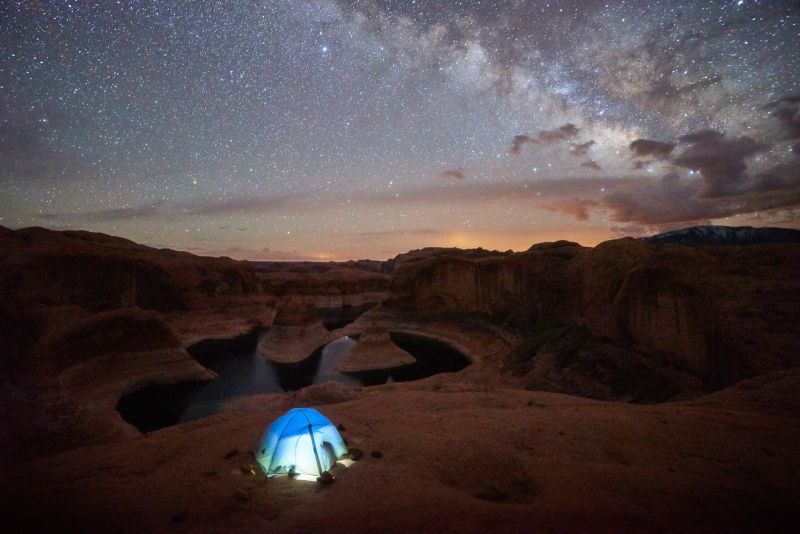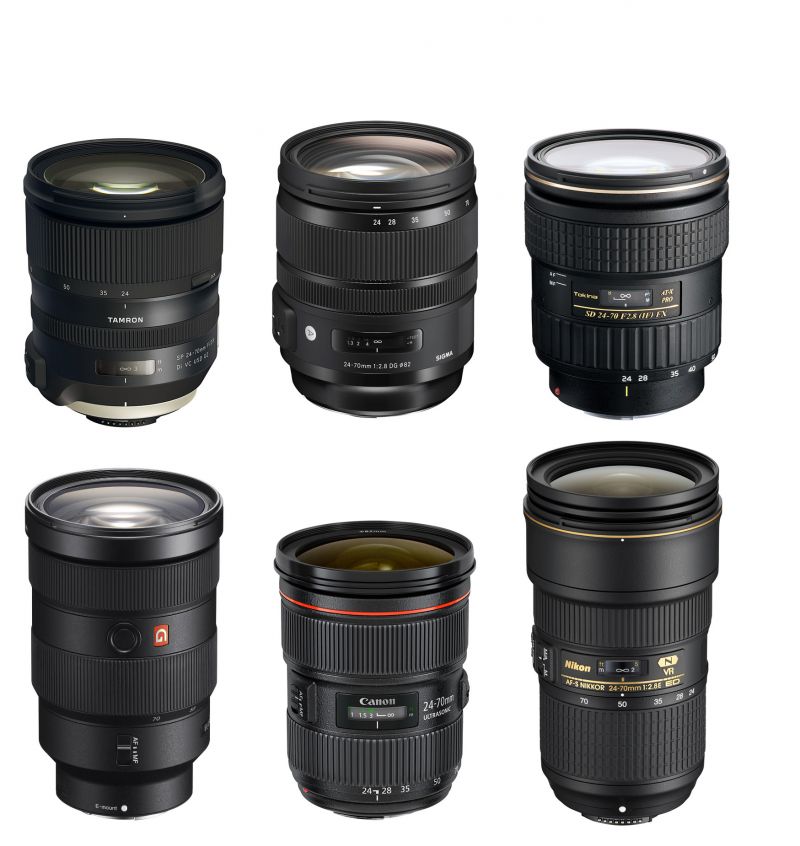
Here’s a thought for all of us photographers to ponder: being a “fankid” isn’t only annoying, it’s actually BAD for that camera brand we love!
So, please, just stop “fanboy-ing”. Nobody’s perfect, not you nor me, and certainly not your favorite camera gear brand.
The Fan Club Mentality Of Social Media
Unfortunately, as social media has blown up over the last decade-plus, the trend of aggressively praising and defending your favorite camera system has become very common among photographers of all types, from beginners to professionals.
Of course, this type of argument existed long before social media, but from the forums to Facebook groups over the last 10+ years, it feels like the “flame-wars” have hit a whole new level…
 Related: Mac versus PC, for the umpteenth time! (For Video Editing)
Related: Mac versus PC, for the umpteenth time! (For Video Editing)
In fact, it’s not just a photography thing; literally every product brand name out there has its fankids, and of course haters too.
Too many people on the internet seem to believe that their camera brand is the best, it has zero shortcomings worth mentioning or dwelling on, and if you’re caught harping on a flaw, you’re just a bad photographer who doesn’t know how to use a camera/lens correctly, or you’re just jealous of the brand you’re “hating on”… Have you ever noticed this? I know I have!
Here’s why it is totally counter-productive to be obsessed with any make or model of cameras or lenses, and why you should be willing to say something critical every now and then.
1.) Nobody Likes The Kool-Aid Drinker
 Me, circa 2014. (I prefer water or gatorade over Kool-Aid)
Me, circa 2014. (I prefer water or gatorade over Kool-Aid)
Pictured: Mindshift Rotation 180 Pro Backpack. If I’m a fanboy of anything,
it’s not a camera or lens brand, it’s Mindshift Backpacks! So comfy…
First things first: we all know it’s ridiculous to argue about which camera is just slightly better than another, right? The fact is, every camera and lens made in the last 5-10 years is absolutely capable of creating amazing images.
Yes, some cameras and lenses are weak in one respect, but strong in another. However, they all have at least a couple of advantages that make them a great choice for certain types of photography.
So, not only is it a ridiculous waste of everybody’s time to sit around and listen to someone do nothing but gush with praise (or vent with hate) about a particular piece of gear, it’s also making things worse for everyone, including the camera/lens company themselves! How? I’ll explain that right now…
2.) If You Hide Or Ignore Flaws, They Don’t Go Away, They Get Worse
The biggest problem with having nothing but hype and “positive vibes” is that any shortcomings or flaws, wherever they do exist, get ignored. The result? Those flaws might get worse, or they might just take forever to get fixed/improved.
 Nikon D750, Sigma 14mm f/1.8 Art | 2 sec, f/1.8, ISO 3200
Nikon D750, Sigma 14mm f/1.8 Art | 2 sec, f/1.8, ISO 3200
(f/1.8 in a 14mm lens? Totally unprecedented, yet totally welcomed!)
 Canon EOS R, Canon EF 16-35mm f/2.8 L mk3 | 1/300 sec, f/14, ISO 100
Canon EOS R, Canon EF 16-35mm f/2.8 L mk3 | 1/300 sec, f/14, ISO 100
Yes, the Canon EOS R makes an incredible travel & landscape camera!
Think about it- if a large corporation tries to do a customer survey and they get nothing but “good job!” pat-on-the-back replies, the results of the survey are almost useless.
So, if we want something to be improved, we have to speak up. If we don’t talk about ways that something can be improved, then shortcomings and drawbacks can pile up. Eventually, the actual competitiveness of the whole product or brand is affected.
Even if we’re relatively happy with the cameras and lenses we have now, something new might come along that we miss out on because the brand we love so much has gone on autopilot.
3.) Attacking Others Is A Sign Of Insecurity
Sticking our heads in the sand about our own gear’s flaws is unwise, but it’s also not a good sign if we go off the deep end with pessimism, negativity, or even aggression about everything.
So, of course, always be careful of going too far in the opposite direction of unicorns and rainbows.
 Nikon D750, Nikon 70-200mm f/2.8 | 1/800 sec, f/4, ISO 100
Nikon D750, Nikon 70-200mm f/2.8 | 1/800 sec, f/4, ISO 100
The D750 is not exactly a high-speed action camera, but it gets the job done!
Usually, when someone crosses the line from polite disagreement to a strongly-worded argument, (let alone personal attack) it’s a telltale sign: that person is insecure about whatever decisions they’ve made, whether it’s about their camera gear, or their creative style of photography itself.
Hey, we get it- you spent a lot of money on that camera, lens, flash, tripod, or whatever. Or, you’re really proud of that crazy new Photoshop technique you just learned. If someone tries to suggest that you didn’t make the best gear shopping decision, or that your photos themselves could still be improved, it can be a “trigger”.
So, at the very least, if we’re not ready to handle someone’s un-wanted critique or negativity, we can simply agree to disagree. And, whenever possible, consider both sides of an argument with an open mind.
Remember, this isn’t about sitting around singing kumbaya and saying “nice photo!” It’s about pursuing balanced, genuine growth and improvement as both a photographer and a human being.
4.) Competition Is Healthy For The Customer
Why else should photographers bother to point out when their gear has a weakness or two? Because, like I said, that’s how we keep “them” (the camera companies) on their toes.
 Pictured: Sony A7R3, FE 24-70mm f/2.8 GM, Syrp Genie Mini, TetherTools Battery
Pictured: Sony A7R3, FE 24-70mm f/2.8 GM, Syrp Genie Mini, TetherTools Battery
That’s how we get better gear, sooner rather than later, from not just one camera system, but from multiple camera companies. It’s a total win-win, for us as photographers and them as corporate entities.
(SO Listen up, Camera Makers!)
Examples of long-term struggles with a particular shortcoming are common among every major camera company. Here are some of the most cliche ones from the last 10+ years…
Canon 6D, Rokinon 14mm f/2.8, ISO 12800 time-lapse test
Despite being nearly 7 years old, the 6D remains a stellar astrophotography camera!
Canon has had many vocal, loud supporters defended their camera sensors’ dynamic range as a non-issue, and as a result, (okay, you have permission to debate causation VS correlation in the comments, fine!) …Canon’s sensors seemingly hit a brick wall of dynamic range (at base ISO) for nearly a whole decade.
They only recently began to make significant improvements with some of their latest sensor designs, when they finally switched some of their underlying sensor technology, but they’re still a noticeable distance behind the Nikon/Sony sensors’ shadow recovery at lower ISOs. (About one stop or two, depending on which cameras you compare.)
Was it a non-issue for most photographers, who shot in normal conditions and learned how to shoot a correct exposure? Yes, absolutely. The dynamic range debate was blown way out of proportion, as far as the average photographer is concerned.
However, almost every serious landscape photographer I’ve known in the last 5+ years has jumped to Nikon or Sony, since that’s one arena where base ISO dynamic range matters a lot.
 Sony A7R3, FE 70-300mm G OSS | 1/200 sec, f/10, ISO 100
Sony A7R3, FE 70-300mm G OSS | 1/200 sec, f/10, ISO 100
Sony’s “R” series mirrorless cameras are a top choice for “hardcore” landscapers
Speaking of Sony, don’t they have a shortcoming that they’re notorious for, too? They were the first to market with the earliest full-frame mirrorless system, which was impressive, but yeah, that first generation had a pretty abysmal overall user interface, from its poor ergonomics and build quality to its abysmal menu organization…
Most Sony early adopters largely downplayed the many drawbacks, even though they presented major issues for serious professional work, and Sony took it pretty slow over four generations (5-6 years) of camera bodies to put enough effort into improving the ergonomics, menu interface, and customizability of the camera.
In fact, their latest camera, the A7R IV, is the first camera that finally seems like the engineers really and truly listened to the specific complaints about ergonomics, and yet the menu interface is still not as intuitive as it could be.
To Sony’s credit, they were smart to prioritize the bigger mirrorless drawbacks such as battery life and autofocus reliability. However, if the Sony fans had been just a little louder about how frustrating the menus were/are, they might have been a lot better by now.
But, that’s another topic for another day, and I’m sure there’s already a lot of eye-rolling going on among readers. Let’s talk about Nikon, last but not least.
 Nikon D750, Tokina 17-35mm f/4 | 30 sec, f/4, ISO 6400
Nikon D750, Tokina 17-35mm f/4 | 30 sec, f/4, ISO 6400
Despite being 5 years old, the Nikon D750 is the other “best value full-frame DSLR”
 Nikon D750, Rokinon 14mm f/2.8 UMC | 30 sec, f/2.8, ISO 12800
Nikon D750, Rokinon 14mm f/2.8 UMC | 30 sec, f/2.8, ISO 12800
[Click HERE to learn everything about Milky Way and nightscape photography!]
Indeed, Nikon always seems to be the last to get on board with new things. They have always delivered truly great cameras that are worth the wait, but they do take forever to deliver. Is the D850 one of the best DSLRs ever? Absolutely. But it’s a DSLR, in the age of mirrorless’ “shock-and-awe”… (For the record, I personally believe DSLRs are not going “extinct” any time soon, though some may disagree.)
Either way, Nikon’s “slow and steady wins the race” attitude can really pay off sometimes, but other times it can be agonizing to watch. And with modern society getting more and more impatient, and lowering their attention spans, anyone who wants to see Nikon’s great cameras continue to be so great, should probably urge them to figure out how to continue delivering well-thought-out cameras, but at a more rapid pace.
Because, let’s be honest, Sony is just spilling out solid cameras left and right.
 Sony A7Riii and Sony A7iii: Awesome lenses, even more awesome bodies
Sony A7Riii and Sony A7iii: Awesome lenses, even more awesome bodies
By the way, if there is a trend among all three of these shortcomings that we could notice, it’s that a lot of drawbacks have to do with camera body technology, not lenses.
While Sony has gotten so many generations deep into their A7-series cameras that they’re just now making strides towards a manageable interface, Canon and Nikon should probably start adopting this new rapid-fire, 1-2 year product cycle of camera bodies. That’s just how fast technology is improving.
Then again, Sony probably should have thought twice about the size of their E-mount, considering how many impressive, unprecedented lenses that both Canon and Nikon are making for their new, much larger full-frame mirrorless mounts, such as f/1.2 primes and f/2 zoom(s). Heck, even the Nikon 14-30mm f/4 is an unprecedented zoom, considering it’s the first 14mm-xx zoom to accept standard 82mm threaded filters for landscape photographers…
But, I digress, and I’ve just touched on one of the biggest cans of worms in digital photography right now that social media loves to argue over- Sony’s E/FE mount diameter. So, let’s have one more reality check before the haters arrive en masse: The truth is that Sony’s FE lens lineup is incredible; they’re turning out truly stunning optics, and most photographers will not miss an exotic f/2 zoom or a flawlessly sharp f/1.2 prime. In other words, Nikon and Canon may very well redeem themselves with awesome full-frame mirrorless lens lineups, but Sony isn’t in any trouble at all, they’re still killing it.
5.) Don’t Just Be A Hater | Constructive Critique Is An Art Form
With all that camera brand trash-talking behind us, remember one last thing: it’s no good to just start ranting and trash-talking. Nobody responds well to total negativity. (Ever heard of a compliment sandwich?)
 Nikon D850, (Illuminated buttons!) Sigma 14mm f/1.8 Art
Nikon D850, (Illuminated buttons!) Sigma 14mm f/1.8 Art
The D850 is the best DSLR ever, but I’m just as excited about a Z7 mk2!
If something is truly frustrating, you can simply say, “this is unacceptable, and I expect the issue to be fixed/improved in the next product.”
However, here’s something else you might not have thought of: engaging in a healthy level of self-critique can actually improve your photography! In fact, if we can practice the art of positive critical thinking, not just for the gear we buy but for our photos themselves, we’d all be a lot better off as artists. And at the end of the day, that’s what really matters; gear is just a means to an end result, your imagery is the final product that matters most.
Conclusion
Everything in moderation! It’s that simple. Take the good with the bad, tough love, …whatever your favorite platitude is, go with that. Just remember, critical feedback can be a powerful thing in any product market, and in any creative process.
In fact, even if something doesn’t significantly affect you, take a minute to acknowledge a complaint that other photographers seem to have. Then, hopefully, they’ll do the same for you if the situation is ever reversed and you’re feeling like the only one who cares about something.
Healthy competition among all of the big camera gear brands is the best thing for us as photographers. If one contender falls too far behind, whether it’s your preferred brand or another, eventually it can lead to a less competitive market, which could mean higher prices and/or less innovation.
 Tamron, Sigma, Tokina, Sony, Canon, and Nikon all have stellar 24-70mm f/2.8 lenses
Tamron, Sigma, Tokina, Sony, Canon, and Nikon all have stellar 24-70mm f/2.8 lenses
Right now, the camera market is in an incredible position. All the camera systems have a lot to offer, and certainly a huge amount of potential. It’s a critical time, though, for photographers to speak honestly about any improvements they want to see or shortcomings that are unacceptable to them. (I’m sure Canon and Nikon got the message about dual card slots, by the way. Now let’s think a little deeper, please!)
What do you think? Most photographers will agree that fanboys/girls can be annoying. But, do you think it actually helps if customers talk a little more honestly amongst themselves? Or does it not matter at all unless it’s an official customer survey? I’m not sure, but I do know that it would be nice to see more healthy competition.
We Want To Hear From You!
What are your biggest frustrations with your latest camera, lens, or accessory purchase? Write them in a comment below!
Maybe it’s foolish to think that a few comments or social media posts can actually influence a large corporation. If you think so, feel free to comment as well. Hopefully, though, it can’t hurt to at least make your voice heard, and if nothing else it can help you be assured that you have the right camera system for your own needs and style.
Matthew Saville
Follow his wilderness nightscape adventures on Instagram: instagram.com/astrolandscapes




Get Connected!